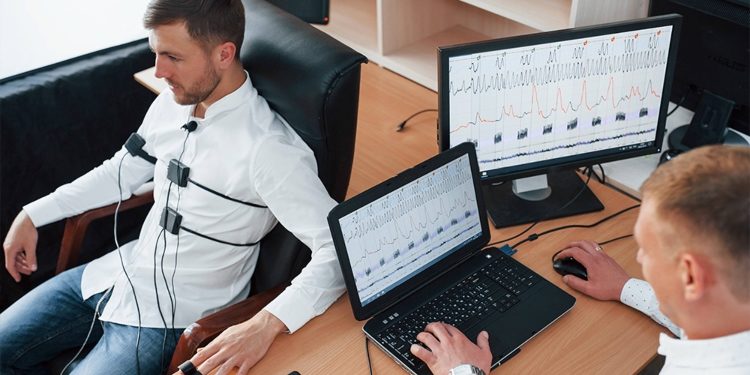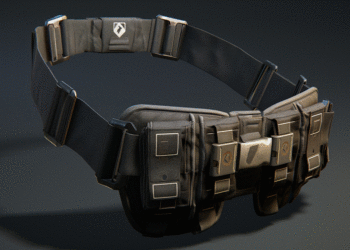If you’ve ever watched a crime drama or courtroom thriller, you’ve probably seen a scene where a character goes through a lie detector test. These tests, also known as polygraph tests, have become a staple in popular culture. But in real life, how accurate are lie detector tests in the UK? In this comprehensive guide, we’ll delve into the world of lie detector tests, explore their accuracy, factors that affect results, the cost of these tests, and more.
Understanding Lie Detector Tests
What Are Lie Detector Tests?
A lie detector test, scientifically known as a polygraph test, is a tool used to measure a person’s physiological responses when asked a series of questions. The premise behind lie detector tests is that when a person lies, they can experience certain physiological reactions such as increased heart rate, sweating, or changes in blood pressure.
How Do Lie Detector Tests Work?
During a lie detector test, several sensors are attached to the person being tested. These sensors typically measure changes in heart rate, blood pressure, respiration rate, and skin conductance. The person is then asked a series of relevant and control questions, while a polygraph machine records their physiological responses. Trained examiners later analyze these responses to determine whether there are significant deviations when the person is answering the relevant questions, suggesting deception.
Lie Detector Test Accuracy
The Myth of 100% Accuracy
It’s crucial to understand that lie detector tests are not infallible. Despite what you may have seen on TV, there is no lie detector test that can guarantee 100% accuracy. The accuracy of lie detector tests can vary, and there are several factors that can affect their reliability:
Examiner’s Skill: The competence and experience of the examiner play a significant role in the accuracy of the test. A skilled examiner is more likely to obtain reliable results.
Type of Questions: The formulation of questions is critical. Questions must be clear and unbiased to produce accurate results.
Subject’s Anxiety: Anxiety, stress, or medical conditions can affect physiological responses and potentially lead to false results.
Countermeasures: Some individuals may attempt to manipulate the test by using countermeasures, such as controlled breathing or focusing on unrelated thoughts.
Variability: Human physiology is complex and can vary greatly from person to person, making it challenging to establish a universal baseline for deception.
Lie Detector Test in the UK: Cost and Availability
Cost of Lie Detector Tests in the UK
The cost of a lie detector test in the UK can vary widely. It typically depends on factors such as the location, the expertise of the examiner, and the complexity of the case. On average, a professional lie detector test can range from £400 to £800 or more. Be cautious of very cheap lie detector tests, as they may lack the accuracy and expertise of more established providers.
Professional vs. Cheap Lie Detector Tests
Choosing the right lie detector test provider is crucial. While it may be tempting to opt for a cheaper option, it’s essential to prioritize accuracy and professionalism. Reputable providers, like Global Polygraph Solutions, have experienced examiners and a track record of delivering accurate results.
Also Read: How to Pass a Lie Detector Test: The Art of Truthfulness
Frequently Asked Questions (FAQs):
1. Can I cheat a lie detector test?
While it’s possible to employ countermeasures, skilled examiners can often detect attempts to cheat the test.
2. Can anxiety affect lie detector test results?
Yes, anxiety and stress can influence physiological responses and potentially lead to inaccurate results.
3. How long does a lie detector test in the UK take?
A typical lie detector test can take anywhere from 1 to 2 hours, depending on the complexity of the questions and the examination process.
4. Are there any side effects of undergoing a lie detector test?
Lie detector tests are non-invasive and generally have no long-term side effects. Some individuals may experience mild discomfort or anxiety during the test.
5. Can a Lie Detector Test Be Wrong?
Yes, a lie detector test can produce incorrect results and be wrong due to various factors such as human error, individual physiology, countermeasures, and inconclusive outcomes.
6. Can an Honest Person Fail a Lie Detector Test?
Yes, an honest person can fail a lie detector test. The polygraph measures physiological responses, which may not always align with the truth. If an honest person is nervous, anxious, or experiences stress during the test, their physiological responses could mimic those of someone being deceptive, leading to a false positive result.
7. Can You Successfully Lie on a Lie Detector Test?
It is possible to successfully lie on a lie detector test, but it’s not guaranteed. Some individuals may attempt to use countermeasures like controlled breathing or focusing on unrelated thoughts to manipulate the test. However, skilled examiners are trained to detect such attempts, making it challenging to consistently deceive the test.
8. What Is More Accurate Than a Lie Detector Test?
Statement analysis and forensic interviewing are considered more accurate methods for assessing truthfulness than lie detector tests.
Conclusion
In the realm of lie detector tests, the foremost concern is accuracy. Although they serve as a valuable tool for investigations, it’s imperative to approach them with a discerning eye and a profound awareness of their inherent limitations. It’s worth emphasizing that no lie detector test is infallible; variables such as the examiner’s expertise and the subject’s physiological responses can significantly impact the results.
When contemplating a lie detector test in the UK, it’s vital to prioritize professionalism and precision over cost. Global Polygraph Solutions stands as a reputable name in this field, boasting experienced examiners and dependable outcomes. If you find yourself in need of the services of a seasoned lie detector test provider, do not hesitate to contact them for a consultation.
David Prior
David Prior is the editor of Today News, responsible for the overall editorial strategy. He is an NCTJ-qualified journalist with over 20 years’ experience, and is also editor of the award-winning hyperlocal news title Altrincham Today. His LinkedIn profile is here.


![7 Best POS Software in the UK [2026 Edition]](https://todaynews.co.uk/wp-content/uploads/2026/02/7-Best-POS-Software-in-the-UK-2026-Edition-360x180.png)









































































